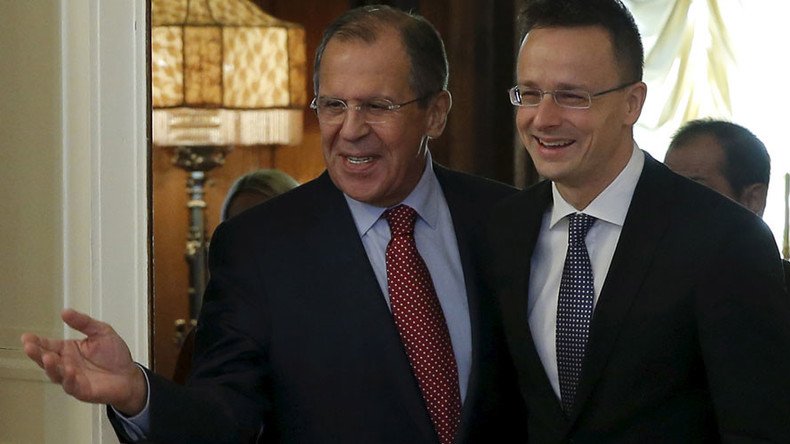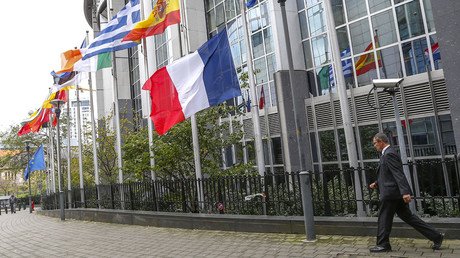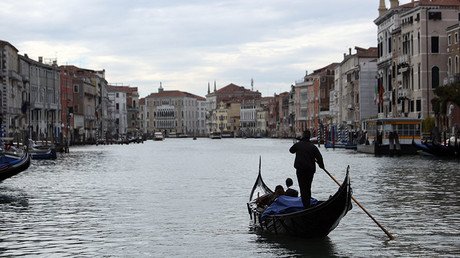Hungary opposes automatic, ‘behind the scenes’ extension of EU sanctions against Russia

Budapest is set to stand against the automatic extension of sanctions imposed on Russia by the European Union, the Hungarian foreign minister said, calling for a discussion about the issue.
“We definitely cannot accept that a decision [on extending sanctions] was made behind the scenes, that is we are against using an automatic procedure. We want discussions on the high political level,” Hungarian Foreign Minister Peter Szijjarto told journalists after a meeting with his Russian counterpart Sergey Lavrov in Budapest on Wednesday, according to Sputnik.
This is not the first time Hungary has raised its voice in an attempt to urge the EU to reconsider the automatic prolonging of anti-Russia sanctions, although it says it is ready to comply with any EU decision
The minister believes that restoring economic cooperation with Russia is important not only for Hungary, but also for the whole of Europe.
“Boosting Europe's competitiveness can only be possible if pragmatic and rational cooperation is established between Europe and Russia based on mutual respect and respect for international law,” Szijjarto said, according to AP. “I believe that this position is being shared increasingly across Europe.”
Putting Russia under pressure by means of sanctions won’t give any positive effect, Russian Foreign Minister Sergey Lavrov told Hungary’s Magyar Nemzet newspaper.
“Attempts to put pressure on Russia clearly won’t make us change our key policies or give up our national interests,” he said.
“Russia’s response to those unfriendly measures was reasonable and took into account Russia’s international agreement liabilities, including those in the WTO,” the minister added, referring to the fact that Russia was compelled to impose counter-sanctions banning some food imports from Europe.
Economic sanctions against Russia could partly be lifted by the end of 2016, a source inside the European Union told RIA Novosti, adding that there has been much controversy and discussion of the subject.
“The EU is likely to extend the sanctions one more time and by the end of the year they may be partially lifted,” the source said.
The European Union has taken several rounds of restrictive economic measures against Russia starting from 2014, accusing Moscow of escalating the situation in Ukraine. A fresh automatic extension of the sanctions is due to come in July.
The list of EU countries in which political figures and business leaders have called for review of sanctions includes France, some German states, Hungary, Cyprus, Greece, Italy and Slovakia.
Last week the required majority of councilors in Italy’s northeastern Veneto region voted a resolution to urge the Italian central government and the EU to lift anti-Russia sanctions.














